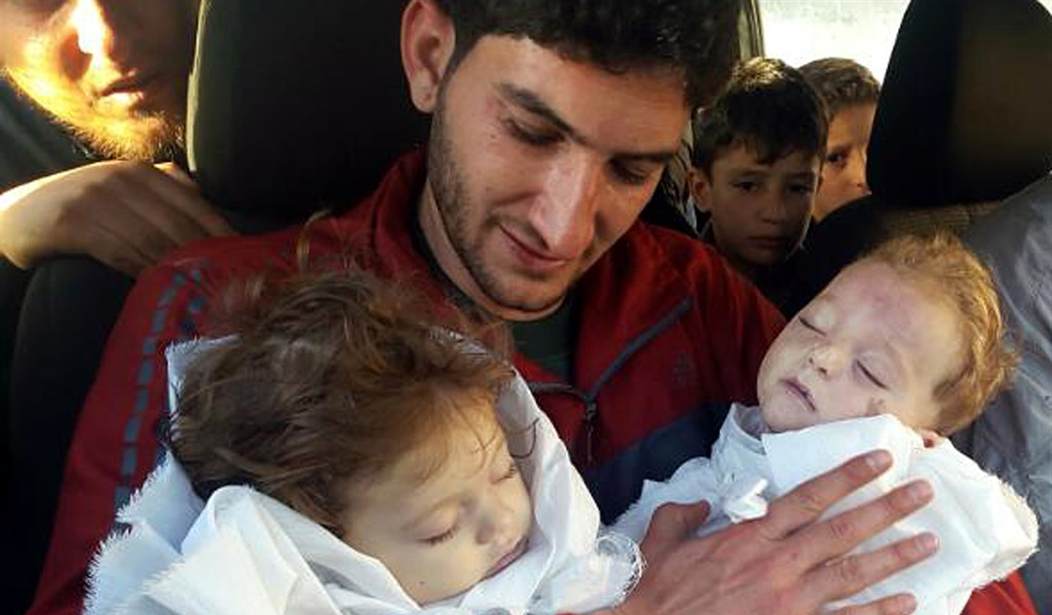Syria continues to deny that it used chemical weapons on an attack in the restive Idlib province, but coroners in Turkey concluded that dozens died from their use. Bodies transported into Turkey from Khan Sheikhoun show unmistakable signs of chemical-weapons exposure, Turkey’s government announced earlier today. The news will put even more pressure on the US and others to act against the Bashar al-Assad government:
Autopsies on some victims confirm a “chemical weapon was used" in Syria, Turkish Justice Minister Bekir Bozdag says https://t.co/h7kFDFXzz8 pic.twitter.com/Jxssr6BNto
— CBS News (@CBSNews) April 6, 2017
Autopsies conducted by Turkish doctors on Thursday have confirmed that chemical weapons were used in an attack which killed scores of people in Syria two days earlier, providing the most concrete evidence to date of why so many people were killed.
Dozens of victims from Tuesday’s daybreak assault on the northwestern town of Khan Sheikhoun have been evacuated to Turkey for medical treatment. Turkish Justice Minister Bekir Bozdag said the World Health Organisation had supervised autopsies for three people, and that chemical agents had been detected.
The Assad regime insists that only the rebels use chemical weapons. The Russians have another explanation:
Syria’s Foreign Minister Walid al-Moualem denied on Thursday that it had used chemical weapons in the past and maintained that it never would.
He added that rebel groups linked to al-Qaeda and the Islamic State have been storing chemical weapons brought from Iraq and Turkey in residential areas.
Russia, for its part, has backed the Syrian claim that the possible chemical attack resulted from an airstrike on rebel munitions.
CBS News follows up on one story from the attack which has become iconic this week:
Abdul Hameed Al-Youssef lost his nine-month-old twins, Aya and Ahmed, in the attack. A photo of the bereaved father clutching his dead children in the aftermath is among the images that have drawn condemnation from around the globe.
Al-Youssef buried his children on Wednesday, along with their mother.
So what next? CBS explains that there aren’t many good options, in part because our earlier abdication in 2012-13 allowed Russia to fill the political vacuum. With Vladimir Putin fully and militarily engaged in support of Assad, any military action could start a war between the US and Russia:
Right now, about all Trump and the US can do is to push hard on Russia to either back away from Assad or at least yank his choke chain. That’s what Rex Tillerson meant yesterday when he urged Putin to “really think carefully” about its alliance with Assad, but the Russians have thought about it very carefully. They have put together a deliberate policy of engagement with the Shi’ite powers in the region, which includes Assad as Iran’s client on the western edges. We can make that more costly for Russia in the international community by laying on more sanctions, but that will mean an end to any thoughts of engaging Russia in other spheres. We’ll see which matters more — better relations with Putin or the “many red lines” Trump accused Assad of crossing yesterday.








Join the conversation as a VIP Member